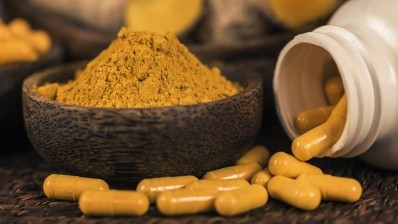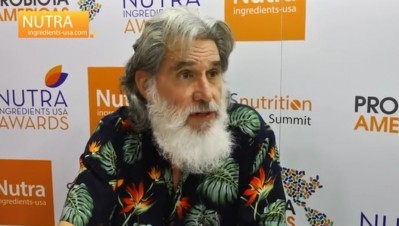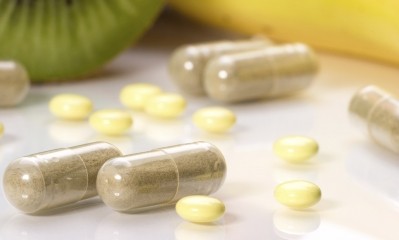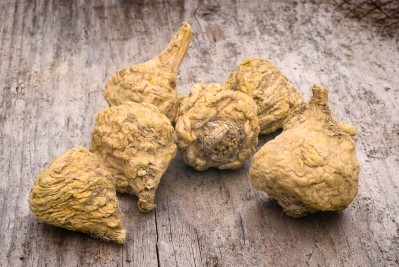BAPP bulletin details adulteration issues for turmeric and its extracts
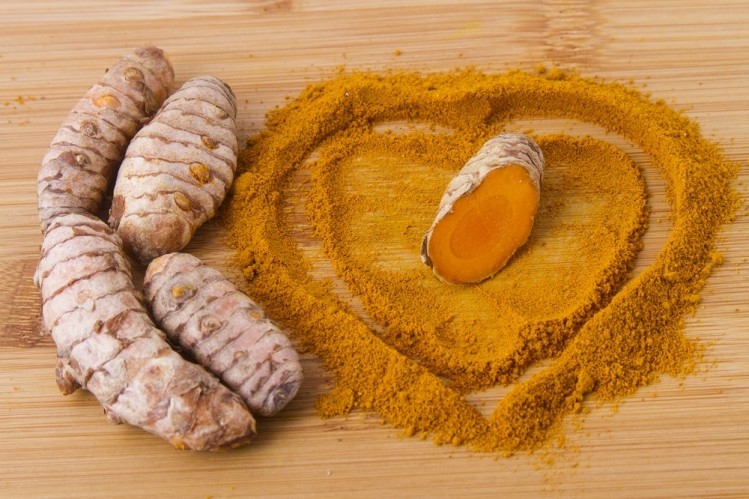
Supplements based on turmeric and curcumin are booming in popularity, which unfortunately makes room for adulterators to ply their trade. The new bulletin outlines the common adulterants for this botanical that have been seen on the market such as adulteration with related species, artificial colorants, and the addition of synthetic curcuminoids to turmeric extracts
The bulletin is part of the ongoing Botanical Adulterants Prevention Program (BAPP), spearheaded by the American Botanical Council in cooperation with the American Herbal Pharmacopoeia and the National Center for Natural Products Research.
Blockbuster
Herbal dietary supplements based on turmeric and the curcuminoids it contains has experienced impressive growth over the last five years. According to data from market research firm SPINS, which is quoted in the bulletin, sales of supplements based on turmeric and curcumin more than doubled between 2013 and 2016, growing from $20,082,843 to $47,654,008. Turmeric has been the top-selling dietary supplement in US natural food stores since 2013.
The success has also been seen in mainstream retail outlets, growing from $9,752,445 (and number 22) in 2012 to $22,057,946 in 2016 (and number 10 on the top-selling list).
As we’ve seen with other herbal products, commercial success often walks hand in hand with increased efforts by adulterators. Turmeric adulteration is not new, however, with the earliest reports published in the 1970s and 1980s. Those reports described adulteration of turmeric with other Curcuma species, starches, and dyes.
The addition of undeclared synthetic curcumin (one of the naturally occurring curcuminoids in turmeric root and rhizome) or mixtures of synthetic curcuminoids to turmeric extracts has been reported more recently.
With synthetic curcuminoids available for about one-third the cost of natural curcuminoids it is perhaps unsurprising that fraudulent suppliers are diluting or replacing turmeric extracts with synthetic materials.
“The increased popularity of herbs like turmeric attracts producers and suppliers who are often more concerned about making a profit than they are about selling a high-quality botanical ingredient,” said Mark Blumenthal, founder and executive director of ABC and director of BAPP.
“While there are companies that produce and market high-quality, authentic, reliable turmeric powder and extract supplements, there are also adulterated turmeric ingredients on the market. The BAPP turmeric bulletin is designed to assist purchasing departments and quality control laboratories in the herb, spice, and dietary supplement industries in assuring that responsible companies purchase only authentic turmeric ingredients,” added Blumenthal.
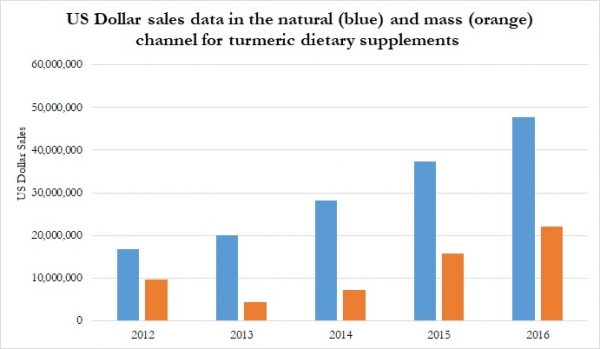
Extensive peer-review process
The new bulletin is written by Ezra Bejar, PhD, an expert in botanical research in San Diego, California.
“The adulteration of this plant species is an extensive, complex, and multifactorial enterprise driven by economic incentive within the food ingredient category,” stated Bejar in the bulletin.
The extensive article lists the known adulterants, and details analytical approaches to detect adulterants, including the use of carbon isotope measurement to differentiate between plant-derived curcumin material or synthetic curcumin. This requires a sophisticated accelerator mass spectrometer to measure 14C in the sample.
The bulletin also provides information on the nomenclature, cultivation, harvest, and market importance of turmeric.
Eighteen laboratory analytical experts from academia, government, and the herb industry have provided input on the bulletin during the peer-review process.
Stefan Gafner, PhD, chief science officer of ABC and technical director of BAPP, commented: “The use of colorants to make the turmeric root visually more attractive is of particular concern. Many of the yellow or orange colorants, such as lead chromate or metanil yellow, may represent a health risk.
“Since daily dosages of several grams of turmeric powder are recommended for health benefits, use of adulterated turmeric products may lead to an intake of excessive amounts of these colorants.”
For more information on the turmeric bulletin, please click HERE.
An important document
Shaheen Majeed, President-worldwide, Sabinsa, welcomed the publication, telling NutraIngredients-USA: "ABC's curcumin adulteration bulletin is extremely comprehensive, and we commend them for it. Several of Sabinsa's top scientists and I have been in frequent communication with Dr. Gafner for well over a year to provide details on curcumin adulteration we've identified in the marketplace. We described to them in detail the growing problem of adulteration with unidentified synthetics, and the radiocarbon testing results we provide on every lot of Curcumin C3 Complex.
"We hope that all curcumin suppliers, and more importantly buyers, will utilize this important document."
